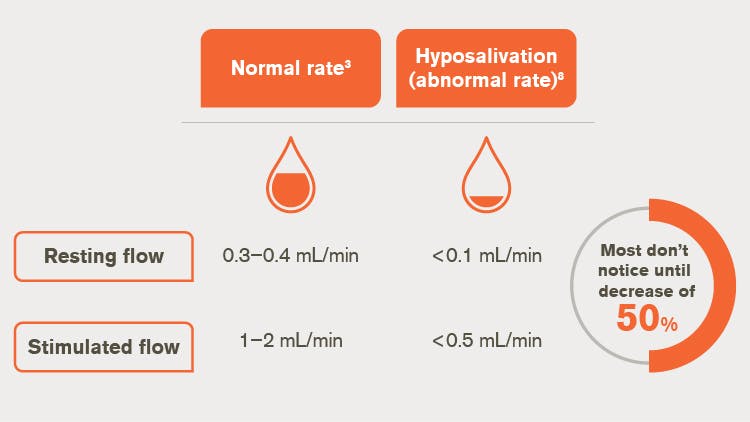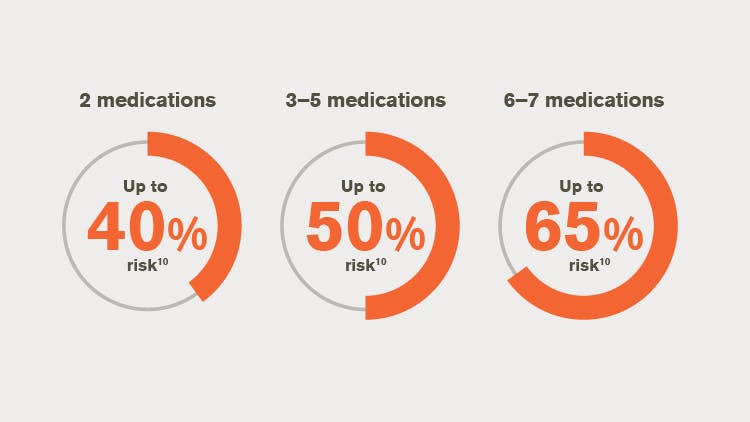Dry mouth causes: Reasons for dry mouth
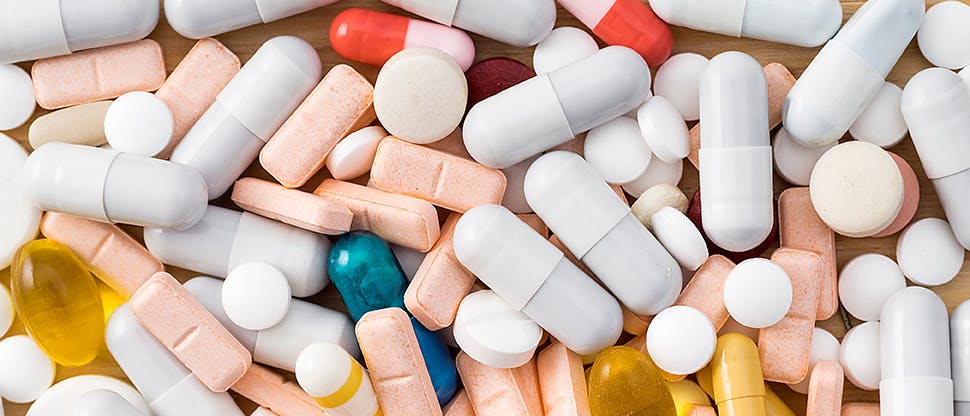
Recognising the underlying causes of dry mouth in your patients
Although medication is the number one cause of dry mouth, other causes can lead to reduce saliva flow.
Dry mouth causes
- Taking medication is the number one cause1 of dry mouth as it is a side effect of many common medicines2,3
- Taking multiple medications may increase the risk of dry mouth by 40%4
- Other causes include conditions such as Sjögren’s syndrome, diabetes and salivary gland damage5,6
Reasons for dry mouth: salivary gland hypofunction
Dry mouth is associated with changes in saliva composition and may have no immediately identifiable cause.3,5 Salivary gland hypofunction – the objective measurement of reduced salivary flow – can be associated with:3,5,7,8
- Medical treatments and polypharmacy
- Lifestyle choices
- Health conditions
- Damage to the salivary glands
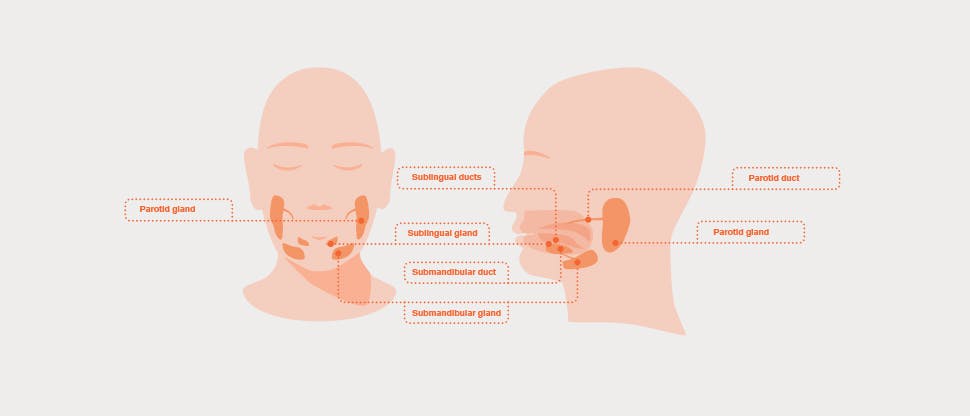
Salivary gland physiology
Three main salivary glands produce 90% of saliva.5 These glands produce the two major types of secretion that form saliva:5
- Serous fluid (mainly from the parotid and submandibular glands)
- Mucous (mainly from the submandibular and sublingual glands)
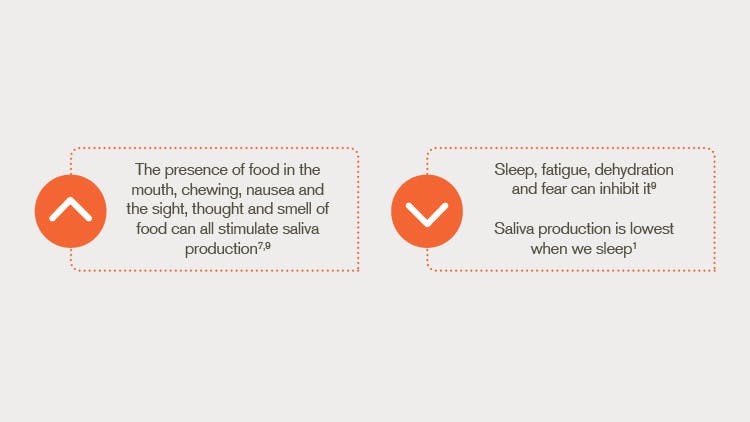
Certain stimuli can change the saliva flow rate and cause dry mouth7
The autonomic nervous system (ANS) controls the volume and type of saliva from these glands and maintains a steady flow.7Different stimuli may increase or decrease the rate of this flow.7
The different causes of dry mouth
Offer your dry mouth patients a solution that suits their different needs, both day and night
Impact on patient quality of life
Find out about the impact that dry mouth has on patients’ daily lives
